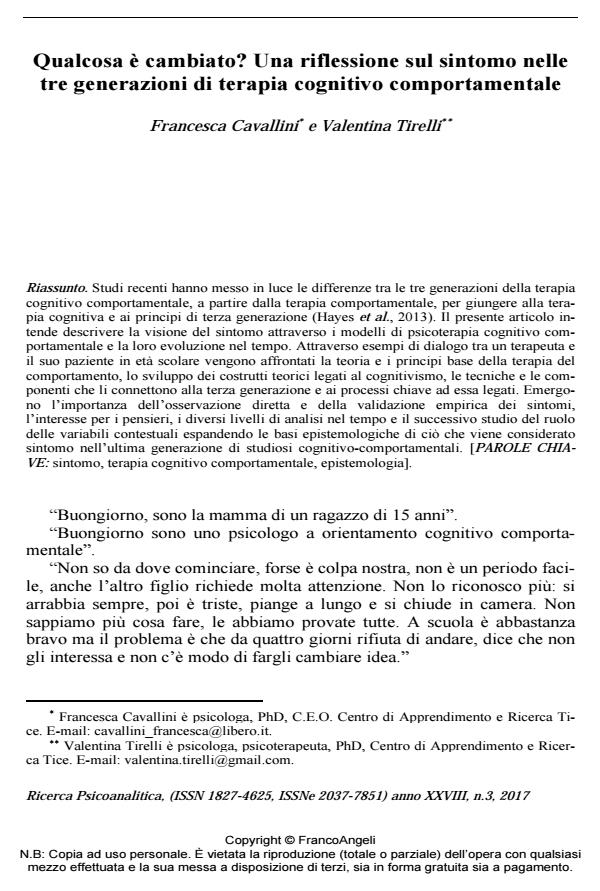Did anything change? A reflection on symptoms in the three generations of cognitive behavioral therapy
Journal title RICERCA PSICOANALITICA
Author/s Francesca Cavallini, Valentina Tirelli
Publishing Year 2017 Issue 2017/3
Language Italian Pages 12 P. 67-78 File size 184 KB
DOI 10.3280/RPR2017-003006
DOI is like a bar code for intellectual property: to have more infomation
click here
Below, you can see the article first page
If you want to buy this article in PDF format, you can do it, following the instructions to buy download credits

FrancoAngeli is member of Publishers International Linking Association, Inc (PILA), a not-for-profit association which run the CrossRef service enabling links to and from online scholarly content.
Recent studies have highlighted the differences between the three generations of cognitive behavioral therapy starting from behavioral therapy to arrive to cognitive therapy and the third-generation principles (Hayes e coll., 2013). This article describes a view of symptoms through the models of cognitive behavioral therapy and their evolution in time. With the help of examples of dialogue between a therapist and a young patient, the author describes the theory and the basic principles of behavioral therapy, the development of the concepts related to cognitivism, the techniques and components that link them to the third-generation and its key processes. From this emerge the importance of direct observation and the empirical validation of symptoms, attention for thoughts, different levels of analysis in time and the study of the role of variables in the context while expanding the epistemological basis of what is considered a symptom in the latest generation of cognitive behavioral scholars.
Keywords: Symptoms, cognitive behavioral therapy, epistemology
Francesca Cavallini, Valentina Tirelli, Qualcosa è cambiato? Una riflessione sul sintomo nelle tre generazioni di terapia cognitivo comportamentale in "RICERCA PSICOANALITICA" 3/2017, pp 67-78, DOI: 10.3280/RPR2017-003006